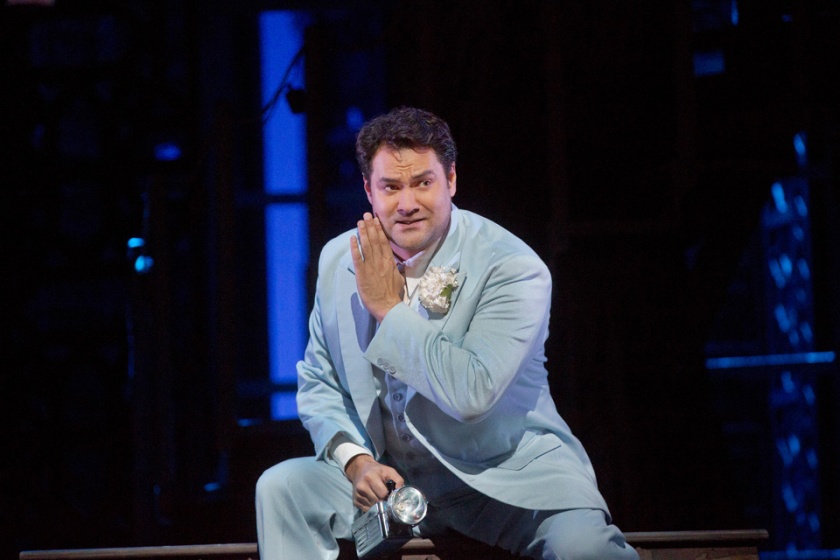So in the end he had nowhere to go. Boxed in on the boardwalk by Joe Harper, aka Tommy Darmody, and two I.R.S. agents, Nucky Thompson is murdered by the grandson of the girl he betrayed so long ago.
“Boardwalk Empire” ended its five-year run on Sunday. While the denouement was just, it left a few questions behind.
On the one hand, having Nucky dispatched by Tommy Darmody was an exciting twist, though long-time viewers of the show undoubtedly got it when Tommy referred to “Mee-maw” in his final confrontation with the family enemy. However, in the clear light of day, there appeared to be a serious case of SORAS (Soap Opera Rapid Aging Syndrome) going on. If my math is correct, Tommy couldn’t have been more than 14 at the time this episode is taking place. We’re still in 1931—the last season of “Boardwalk Empire” was set entirely in 1924, and Mickey Doyle recently mentioned that he had run the former Onyx Club “for the last seven years.” As for Tommy’s birthdate, this seems to have been firmly established back in Season 2 when his father ran off to war in 1917, leaving the pregnant Angela behind.
When the big reveal came, I first thought “Here’s Tommy being his father’s son.” Well, yes and no. Jimmy was something of a scholar at Princeton; I tend to think his life’s path would have been very different had he not gone to war, which of course was precipitated by Gillian’s seducing him. Tommy was removed from his grandmother’s influence at an early age; his appearance as Nucky’s killer begs the question of how he came to know the entirety of the Darmody Family history. Since Richard Harrow held no grudge against Nucky, he wouldn’t have identified Nucky as Jimmy’s killer, and Julia, Tommy’s adoptive mother, wouldn’t have known about this in any event. But Terrence Winter, the brains behind “Boardwalk Empire,” no doubt thought the excitement of the final twist would be sufficient to wallpaper over any inconsistencies. For most viewers, I’d say he was right.
Nevertheless, there was much to enjoy in this final episode. The autumnal strains of Mahler’s Symphony No. 1 threading through the soundtrack. The performance of actor Marc Pickering as young Nucky, having to cope not only with a mouthful of prosthetic teeth and accurately mirroring Steve Buscemi’s every gesture and facial expression, but also speaking with the older actor’s accent (Pickering is English). Nucky’s seeing the future in the form of television (a neat joke), only he’s not in it. Watching Margaret in action as a stockbroker making a different type of killing than her husband, though I sincerely doubt Joseph Kennedy would have needed coaching on how to get ahead by selling short (He would soon become the first chairman of the Securities and Exchange Commission). Her lovely, regret-filled scene with Nucky, and his equally poignant farewell to Eli. The one bit I didn’t like was Charlie Luciano’s convening that first meeting of the heads of the crime families, taken wholesale from “The Godfather.” There’s homage and there’s rip-off. This scene was strictly the latter.
From the start of this final episode, Nucky knew his end was approaching. He had methodically shed himself of possessions and money, and said farewell to both his loved ones and the person over whom he felt the most guilt, Gillian Darmody. That Nucky had procured Gillian for the Commodore was old news—we learned this in Season 1. But we never knew the extent of his betrayal, that he’d manipulate and sacrifice this 13 year-old girl, an orphan whom he had pledged to help. And to a man who though admittedly powerful, so thoroughly despised him. Depressingly, just as his own father did.
A sad ending to an ultimately sad life. RIP “Boardwalk Empire,” and Nucky, Chalky, Narcisse, Mickey, Van Alden, Richard, Gyp, Angela, Jimmy and the dozens of others that met their ends over the years. I’m going to miss this show.



